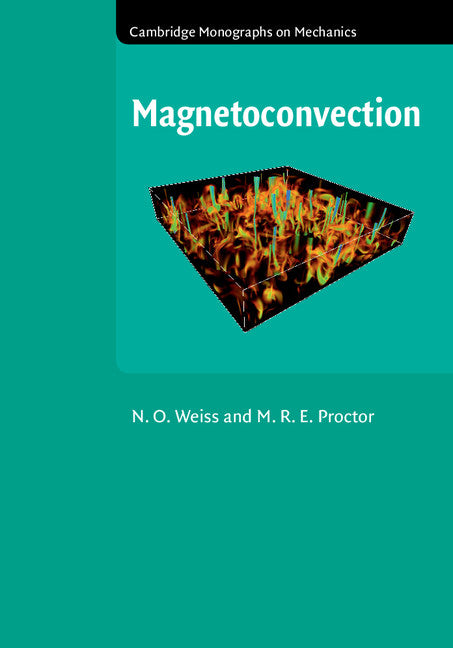Freshly Printed - allow 6 days lead
Couldn't load pickup availability
Magnetoconvection
Leading experts present the current state of knowledge of the subject of magnetoconvection from the viewpoint of applied mathematics.
N. O. Weiss (Author), M. R. E. Proctor (Author)
9780521190558, Cambridge University Press
Hardback, published 30 October 2014
432 pages, 220 b/w illus.
25.3 x 18 x 2.3 cm, 0.96 kg
'[This book] is a real pleasure to read and is a rich gold-mine that occupies a favourite place on my bookshelf.' Eric Priest, The Observatory
The last thirty years have seen great leaps forward in the subject of magnetoconvection. Computational techniques can now explain exotic nonlinear behaviour, transition to chaos and the formation of structures that can be observed on the surface of the Sun. Here, two leading experts present the current state of knowledge of the subject. They provide a mathematical and numerical treatment of the interactions between electrically conducting fluids and magnetic fields that lead to the complex structures and rich behaviour observed on the Sun and other stars, as well as in the interiors of planets like the Earth. The authors' combined analytical and computational approach provides a model for the study of a wide range of related problems. The discussion includes bifurcation theory, chaotic behaviour, pattern formation in two and three dimensions, and applications to geomagnetism and to the properties of sunspots and other features at the solar surface.
Preface
1. Introduction
2. Basic MHD
3. Linearized Boussinesq magnetoconvection
4. The nonlinear regime
5. 2D Boussinesq magnetoconvection
6. 3D Boussinesq magnetoconvection
7. Magnetoconvection, rotation and the dynamo
8. Compressible magnetoconvection
9. Solar and stellar magnetic fields
Appendix A. The Boussinesq and anelastic approximations
Appendix B. Chaotic systems
Appendix C. Double-diffusive convection
Appendix D. Magnetic buoyancy and the magneto-Boussinesq approximation
References
Index.
Subject Areas: Geophysics [PHVG], Astrophysics [PHVB], Mathematical physics [PHU], Plasma physics [PHFP], Fluid mechanics [PHDF]


